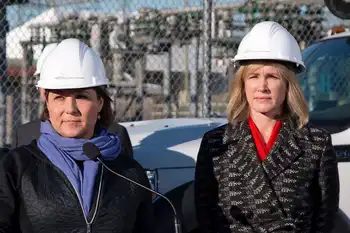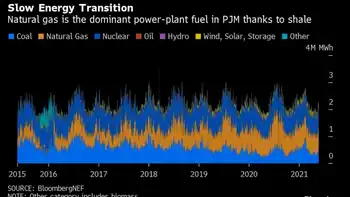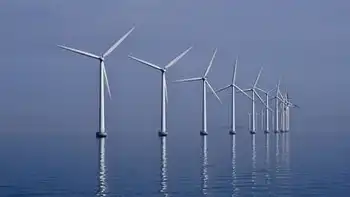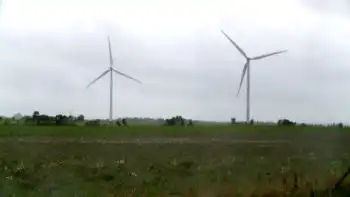Decision on power plant creates concerns
By Knight Ridder Tribune
Substation Relay Protection Training
Our customized live online or in‑person group training can be delivered to your staff at your location.

- Live Online
- 12 hours Instructor-led
- Group Training Available
Rod Bremby, secretary of the Kansas Department of Health and Environment, said his rejection of Sunflower Electric Power Corp.'s proposed plant is a first step in taking on climate change. He said the state would work "to engage various industries and stakeholders to establish goals for reducing carbon dioxide emissions."
That has lawmakers alarmed, fearful that restrictions on carbon emissions - currently unregulated by either the state or U.S. government - could spell costly trouble for industries such as chemical plants, refineries and ethanol plants. "That has a lot of implications," said Senate President Steve Morris, a Hugoton Republican. Morris' district includes the site of the proposed plant.
"I would think industry would be very concerned." They are, and they plan to watch Bremby's next move closely.
"If they're going to work through a process of putting standards in place, we're not going to sit on the sidelines," said Amy Blankenbiller, president of the Kansas Chamber of Commerce. "This is a decision that directly impacts the business community."
Sunflower had asked to build two 700-megawatt generators at an existing plant near Holcomb, Kan. Bremby denied the permit, citing the projected 11 million tons of carbon dioxide the plants would have emitted annually.
Sunflower is expected o challenge the decision in court. Though the decision delighted environmental groups, it infuriated the many lawmakers who strongly supported the plant. It's likely to be a big topic when lawmakers convene in January.
"There may be somewhat of a firestorm," Morris said. Before that, a panel of lawmakers who support Sunflower - all from western Kansas - will likely ask Bremby to appear before them to explain himself. The panel could propose curbing the state's power to regulate carbon emissions.
It would be difficult, but not impossible, for the Legislature to circumvent Bremby and issue the permit itself, according to Sen. Jay Emler, a Lindsborg Republican who is chairman of the Senate Utilities Committee. He said it's much more likely lawmakers will move to block any further bid to regulate carbon emissions.
Bremby hasn't offered any specifics for carbon reduction efforts, but he cited as an example the Regional Greenhouse Gas Initiative. That's an agreement among eight northeastern states to cut carbon dioxide emissions from power plants by 10 percent by 2 20. Under the deal, power plants cannot emit more carbon than permitted unless they buy credits from another company emitting less carbon than it is allowed.
In that way, total emissions are capped and a market incentive is created to control emissions.
While it doesn't take part, Kansas has official "observer" status with a similar pact among western states, the Western Climate Initiative. KDHE spokesman Joe Blubaugh said that Bremby has no definite proposal in mind and simply wants to start the process of figuring out an approach that's best for Kansas.
Joining any such agreement to limit carbon emissions - or any carbon regulation, for that matter - would be a very tough sell in the Legislature. Emler said he doubts lawmakers would approve any such rules unless forced to by Congress.
Earlier, House Speaker Melvin Neufeld, an Ingalls Republican, said carbon rules could prove devastating to the state economy.
"If you come in and regulate CO2 on this (the Sunflower plant), you can't stop there. Next stop: anhydrous ammonia, refineries, ethanol," he said. "You'll kill economic development." Environmental groups say there are better things for lawmakers to focus on now that the plant has been rejected. First among them: working to increase the investment in wind energy in western Kansas. There are practical reasons, such as making up for the energy and jobs that would have come from the coal plant, and there are other reasons, too.
"I really sympathize with the people of western Kansas," said Joe Spease of a Sierra Club. "We need everyone to come together and work hard toward the next step: wind."











